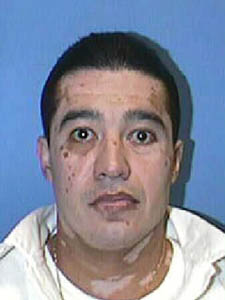Texas Plan to Execute Mexican May Harm U.S. Ties Abroad, Kerry Says
Manny Fernandez, New York Times, December 12, 2013
The scheduled execution next month of a Mexican national by the State of Texas threatens to damage relations between the United States and Mexico and complicate the ability of the United States to help Americans detained overseas, Secretary of State John F. Kerry has warned Texas officials.
The Mexican, Edgar Arias Tamayo, 46, was convicted of shooting and killing a Houston police officer who was taking him to jail after a robbery in 1994. Mr. Tamayo, who was in the nation illegally, was not notified of his right to contact the Mexican Consulate, in violation of an international treaty known as the Vienna Convention on Consular Relations. That violation, an international tribunal’s order for his case to be reviewed and a judge’s recent decision to set Mr. Tamayo’s execution for Jan. 22, are now at the center of a controversy that has attracted the attention of the State Department and the Mexican government.
Despite Mr. Kerry’s involvement, there has been no sign that Texas officials plan to delay the execution. On Wednesday, Mr. Tamayo’s lawyers asked Gov. Rick Perryto grant him a 30-day reprieve and petitioned the Texas Board of Pardons and Paroles to commute his death sentence to life in prison. They are using Mr. Kerry’s letter, sent to Texas officials in September, to highlight the international issues at stake.
In 2004, the top judicial body of the United Nations, the International Court of Justice, ordered the United States to review the convictions of Mr. Tamayo and 50 other Mexican nationals whose Vienna Convention rights, it said, were violated and who were sentenced to death in the United States. The international court, also known as the World Court, found that United States courts had to determine in each case whether the violation of consular rights harmed the defendant. In the nine years since the World Court’s decision, no United States court has reviewed the Vienna Convention issues in Mr. Tamayo’s case, said Maurie Levin, one of his lawyers.
In a letter sent to Mr. Perry and the Texas attorney general, Mr. Kerry took the unusual step of weighing in on a state death-penalty case, arguing that Mr. Tamayo’s execution would affect the ability of the United States to comply with the international court’s order in what is known as the Avena case. The World Court’s judgment is binding on the United States, Mr. Kerry wrote, and complying with it ensures that the federal government can rely on Vienna Convention protections when aiding Americans detained abroad.
{snip}
















